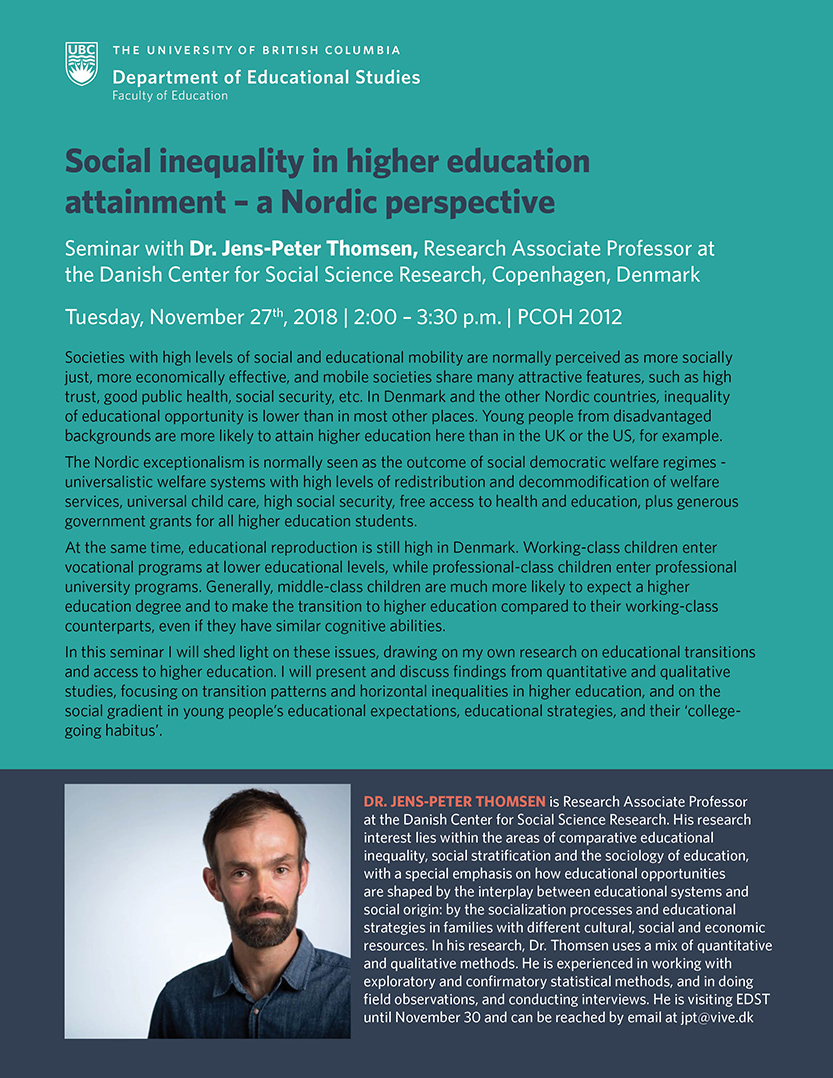February 14, 2019
Friday Seminar Series
Thursday, February 14, 2019
2:00 – 4:00 p.m.
PCOH 2012
The Teacher and Student as Such – Dr. Sam Rocha, Assistant Professor
This paper will make the claim that “the study of education is imperiled by the institutional study of education,” followed by a brief philosophical sketch.
Thinking With Literary Philosophy: What is it and Why is it? – Addyson Frattura-Kampschroer, PhD student & Rabia Mir, MA student
In this talk, we engage with questions of style and form within philosophical writing in education. To do so, we play with the idea and essence of “literariness” in literary philosophy, as a form. We do not seek to convince, but rather to question what literary philosophy is, why it is, and in what ways might it be interesting within the field of education.
Student Labor, Student Strikes, Student Power – Jonathan Turcotte-Summers, PhD student
While post-secondary education in Ontario is under attack, students in Quebec are planning a strike and fighting back. What makes this strike so different? Why isn’t it called a “walkout” or a “boycott”? And why do some think it’s so revolutionary to consider study as a form of labour, and students as workers?
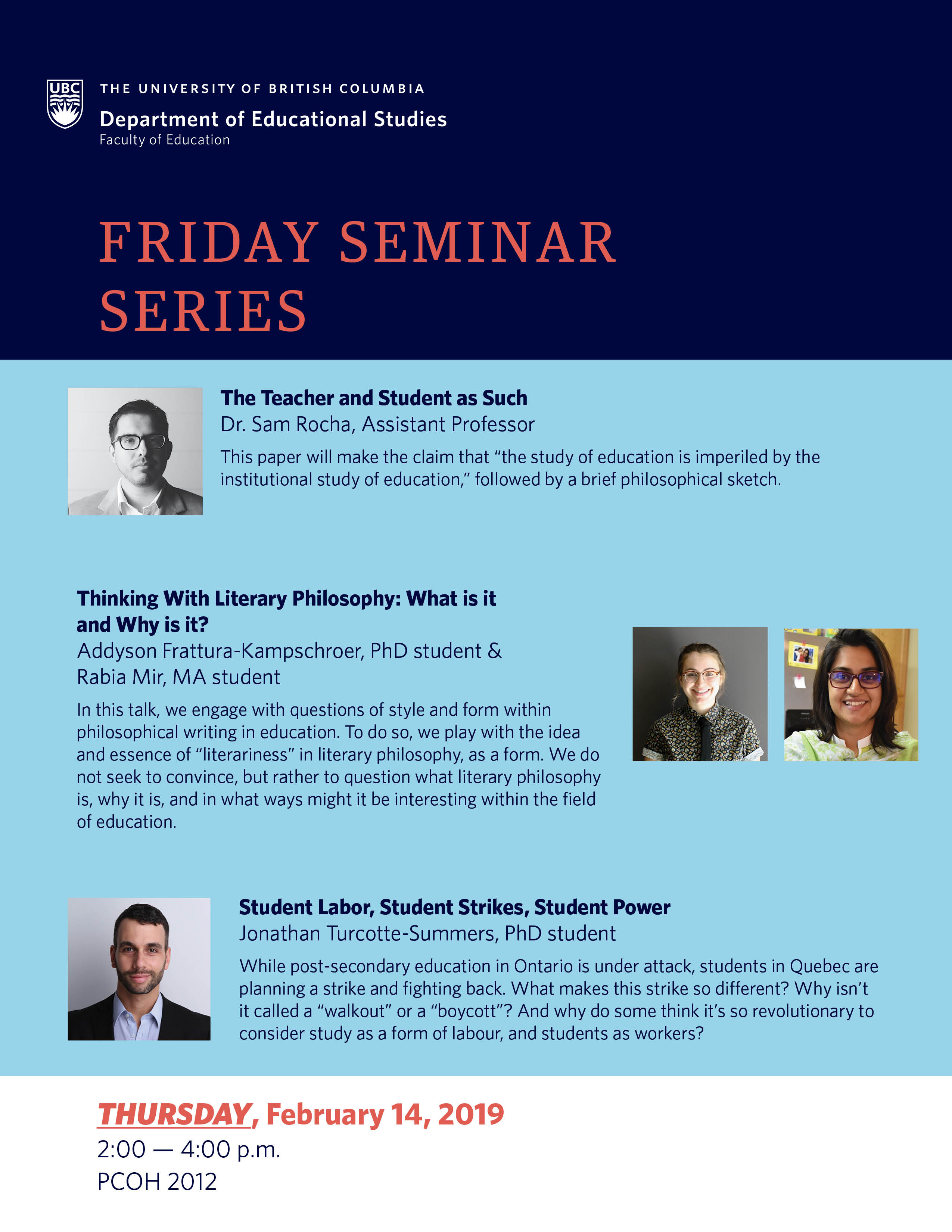
Jan 08, 2019
January 17, 2019
Against purity and for a politics of responsibility
Sponsored by the CRC in Race, Inequalities, and Global Change
Seminar with Dr. Alexis Shotwell, Carleton University
Thursday, January 17th | 4:00 – 6:00 p.m. | PCOH 2012
Often there is an implicit or explicit idea that in order to live authentically or ethically we ought to avoid potentially reprehensible results in our actions. Since it is not possible to avoid complicity, we do better to start from an assumption that everyone is implicated in situations we (at least in some way) repudiate. This presentation investigates that category of complex or big problems toward which we bear impossible responsibilities. Although these responsibilities arise from our particular and situated context — our individual lives — they are not resolvable individually. But most ethical systems on offer posit and return to an individual knower, willer, and actor, enjoining them to aim for personal ethical purity. An ethical approach aiming for personal purity is inadequate in the face of the complex and entangled situation in which we in fact live. Individualism, in the context of relations perceptible through considering embodiment, is an ethical problem because it constitutes ethical success as personal purity. Such personal purity is simultaneously inadequate, impossible, and politically dangerous for shared projects of living on earth. While personal purity may be a winnable aim in some ethical situations, is impossible in situations such as energy use and eating. We do better to aim for different sorts of ethical practice more consonant with the entangled and complex situations we meet. I explore the idea of a “politics of responsibility” as one way to practice this sort of ethics.
Alexis Shotwell is an associate professor at Carleton University, on unceded Algonquin territory. She is the co-investigator for the AIDS Activist History Project, and author of Knowing Otherwise: Race, Gender, and Implicit Understanding and Against Purity: Living Ethically in Compromised Times. Her website is alexisshotwell.com
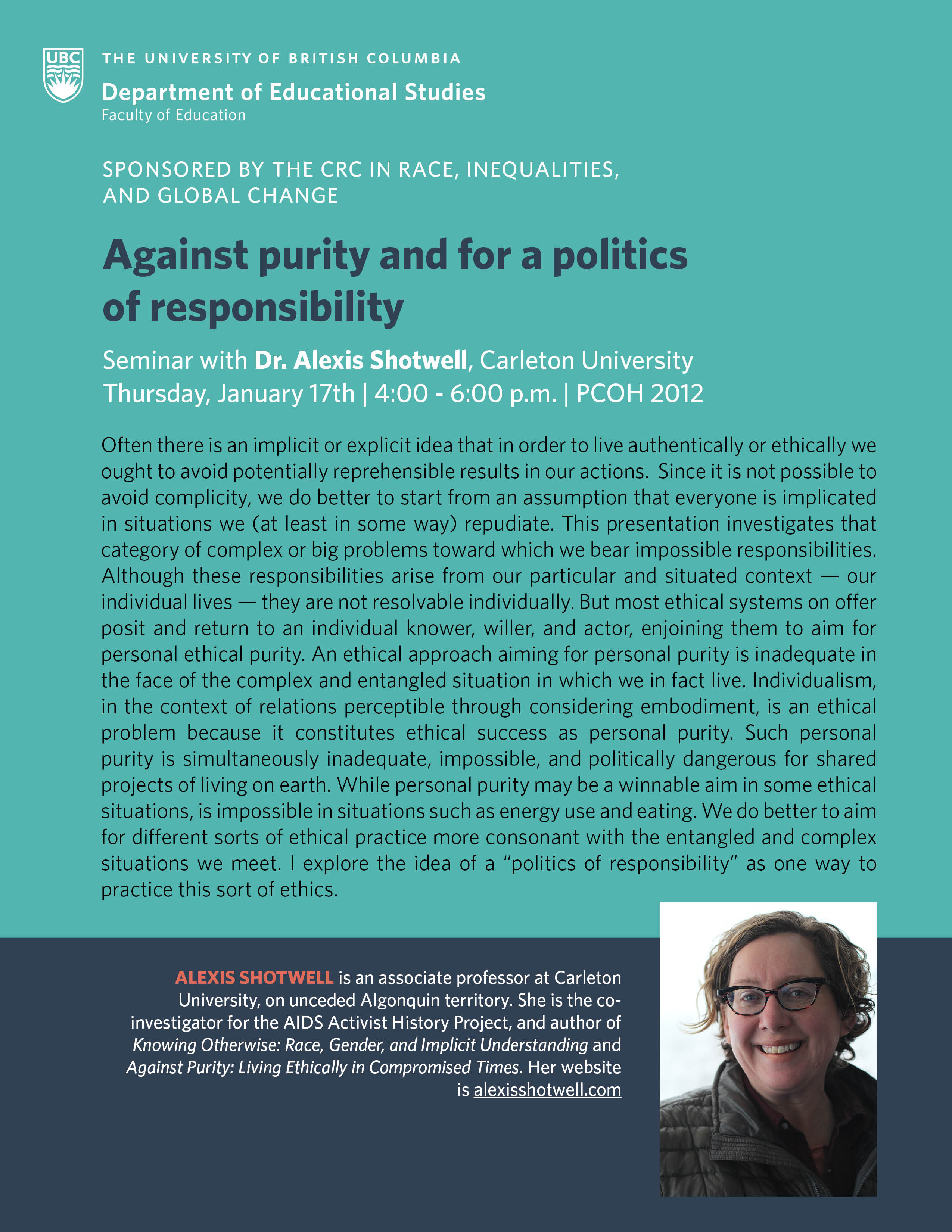
January 18, 2019
EDST FRIDAY SEMINAR SERIES
Friday, January 18, 2019 | 2:00 – 4:00 P.M. | PCOH 1302
Northrop Frye’s writing on geography and space in the Canadian imagination: Universities and Colleges as
scholastic ‘garrisons’
Jed Anderson, PhD candidate
I intend to discuss the unique way higher education in Canada conforms to a certain spatial pattern with historical roots. I will draw primarily on the works of Northrop Frye, who argued that a “garrison mentality” exists in the non-indigenous Canadian imagination. I may draw from additional works by Margaret Atwood, and other Canadian literary figures to further this discussion. I will also refer to Henri Lefebvre’s Production of Space as part of a discussion about the implications of Frye’s theory. This presentation represents research for a paper I intend to submit to the Canadian Society for the Study of Higher Education conference in 2019.
A Phenomenology of Utterance, the Threshold of Teaching
Adi Burton, PhD student, and Dr. Sam Rocha
In this paper, Adi Burton and Sam Rocha explore the relation between the utterance—the Call and the Response—and the Prophet who stands between the utterances in the threshold of teaching. This phenomenological exploration is inspired by texts and commentary by Augustine, Ricouer, Marion, Rosenzweig, and Buber, along with Burton and Rocha’s personal experience reading the Book of Samuel.
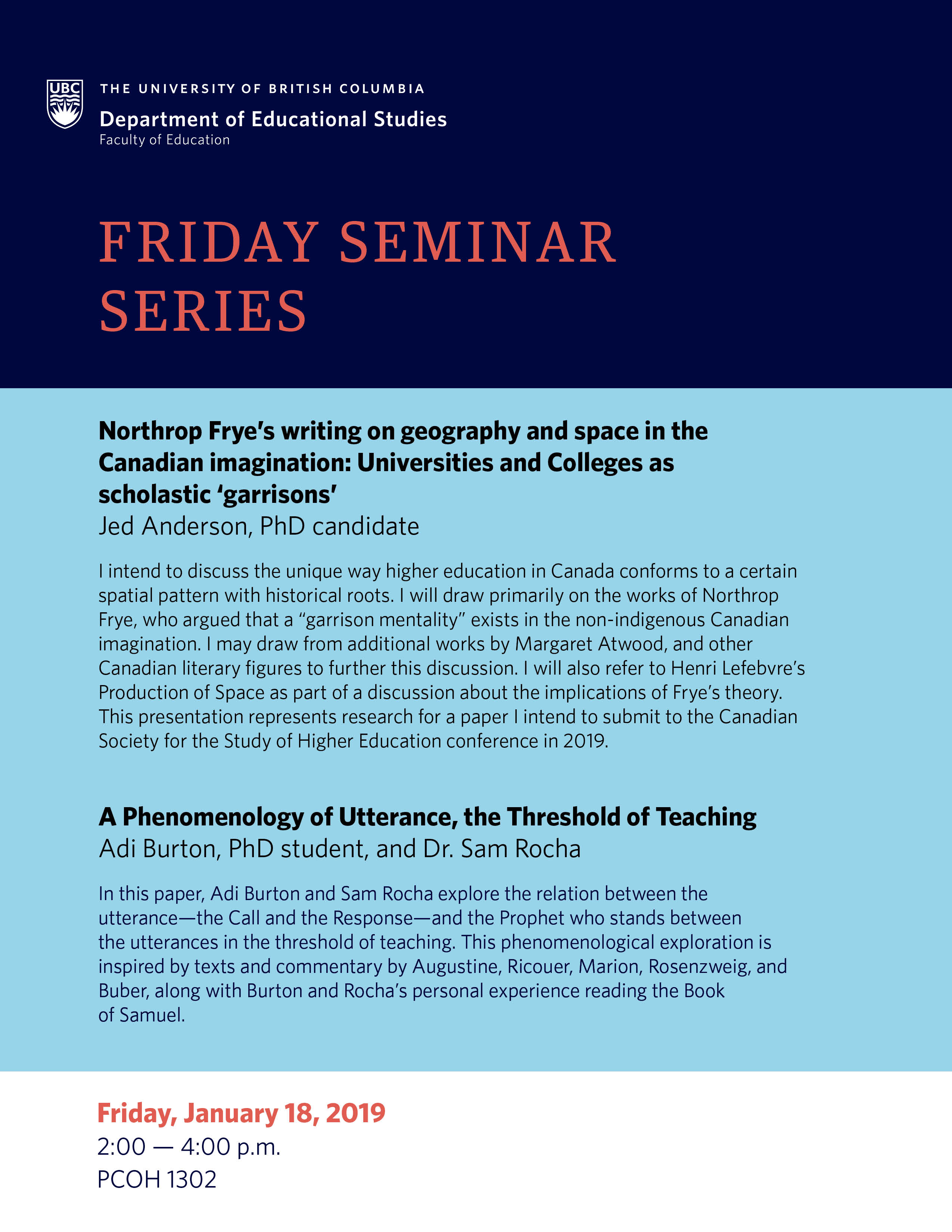
Nov 26, 2018
December 7, 2018
Friday Seminar Series
Friday, December 7, 2018
2:00 – 4:00 PM
PCOH 2012
No pierden el humor: Post-disaster humor in Mexico
Gabriella Maestrini, PhD Candidate
Since my dissertation deals with the pedagogical possibilities of humor and comedy, it is timely to focus on natural disasters such as earthquakes to explore how people affected by them might find, share or create humor in disaster. The Mitacs research focuses on how people who have experienced natural disasters might make meaning, through humor, of these experiences. At the same time, it might provide insight into the political, cultural and social processes through which this humor reveals, shares and produces cultural memories.
How Colonization Mapped the Way for Public Mass Gun Violence and what Education and Society can do about it
Stephanie Glick, PhD Candidate
This work positions public mass gun violence (PMGV) as an intergenerational consequence of colonization, coloniality, and slavery in the United States. I map how the shooter’s white privilege, alongside his white/male fragility, combined with a national consciousness built on an ethos of colonization and coloniality, leads him to believe he has unearned “rights” to the social riches of the center.
I proffer that most of us who benefit from capitalist, neo-liberal, patriarchal state and social institutions are complicit in co-creating the conditions that produce PMGV’s gunmen because in order to exist in such a capacity, we perpetuate a system of insiders and outsiders. As illustrated, possibilities for allaying violence are located in practicing critical self-reflection and “pedagogies of discomfort” (Boler, 1999) that can counter bureaucratic expectations of submissiveness.
Boler, M. (1999). Feeling Power: Emotions and Education. New York: Routledge.
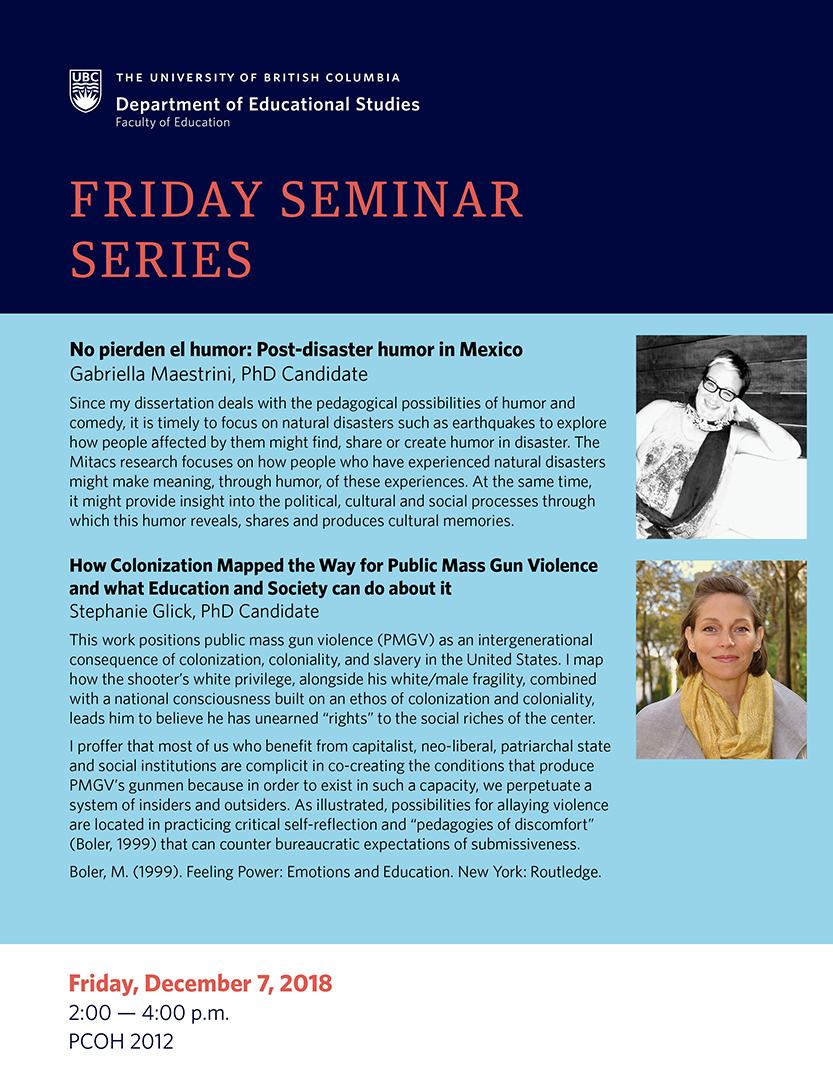
Nov 21, 2018
December 7, 2018
Can the Displaced Speak? Refugee Muslim Young Woman Negotiating Identity and Belonging Through the Camera Lense
November 12 – January 4, 2018
Opening Reception: Friday December 7, 5:00 – 7:30 p.m.
Lobby Gallery, Liu Institute for Global Issues
Please RSVP: www.canthedisplacedspeak.eventbrite.ca
Please join EDST PhD Candidate and PSI Scholar, Neila Miled, and the PhotoVoice participants for a brief presentation and Q&A session followed by refreshments and light snacks.
This PhotoVoice project exhibits the voices of ten Muslim young women who have experienced displacement due to civil wars in Afghanistan, Somalia, Sudan and Syria. It captures the emotions, journeys and memories that a group of Muslim refugees from different cultural, ethnic, and linguistic backgrounds choose to share about the following themes: identity, belonging, the notion of home, and their school experiences.
These young women share being Muslims and becoming ‘refugees’, but this project is an invitation to see them beyond the ‘Hijab’ and the ‘Niqab’. Through the camera lens, they speak for themselves and encourage you to see the world through their eyes. They hope you listen to their stories, as told through their photographs, and invite you to experience the dreams they are chasing and the challenges they face.
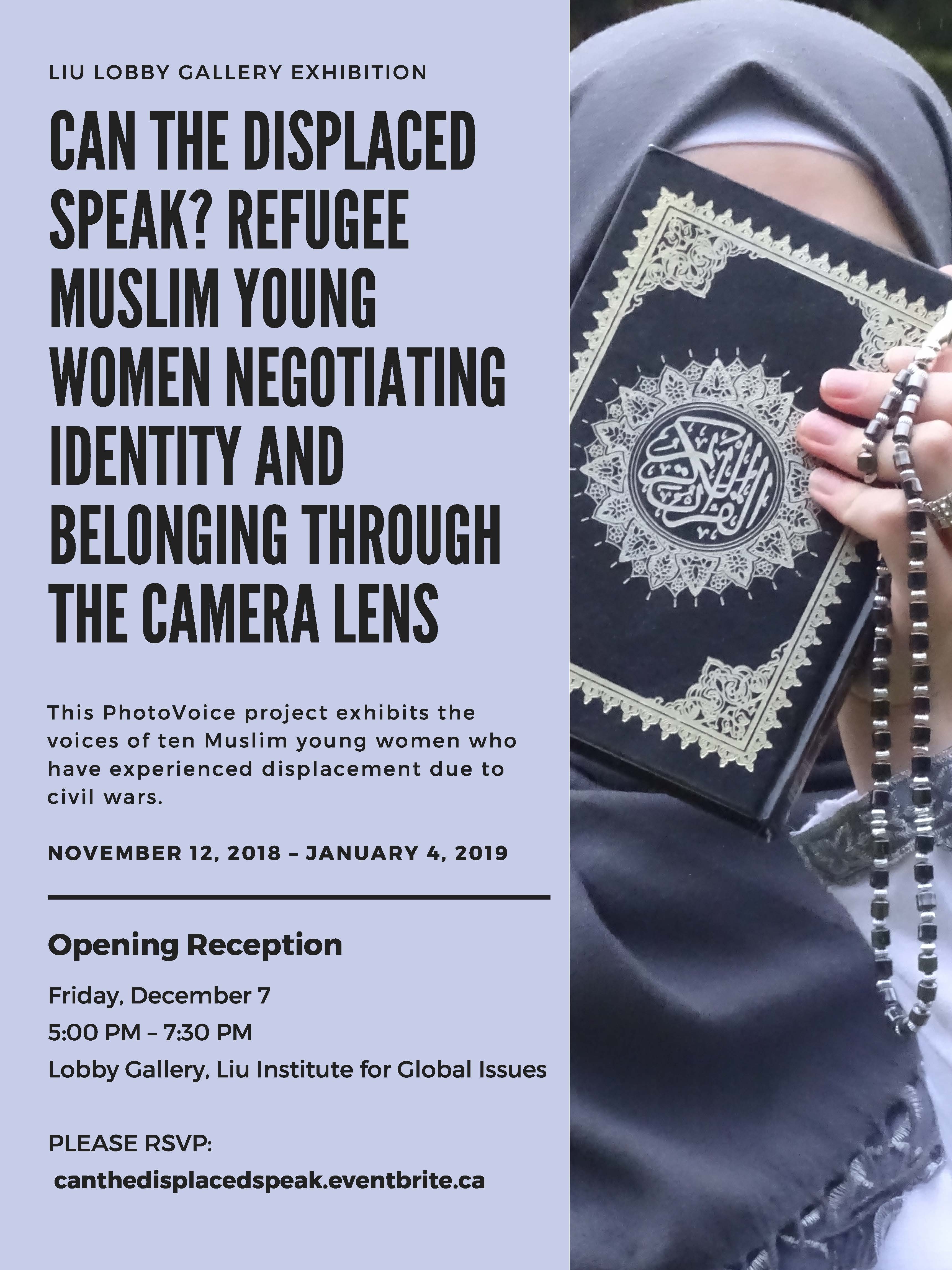
Nov 16, 2018
November 29, 2018
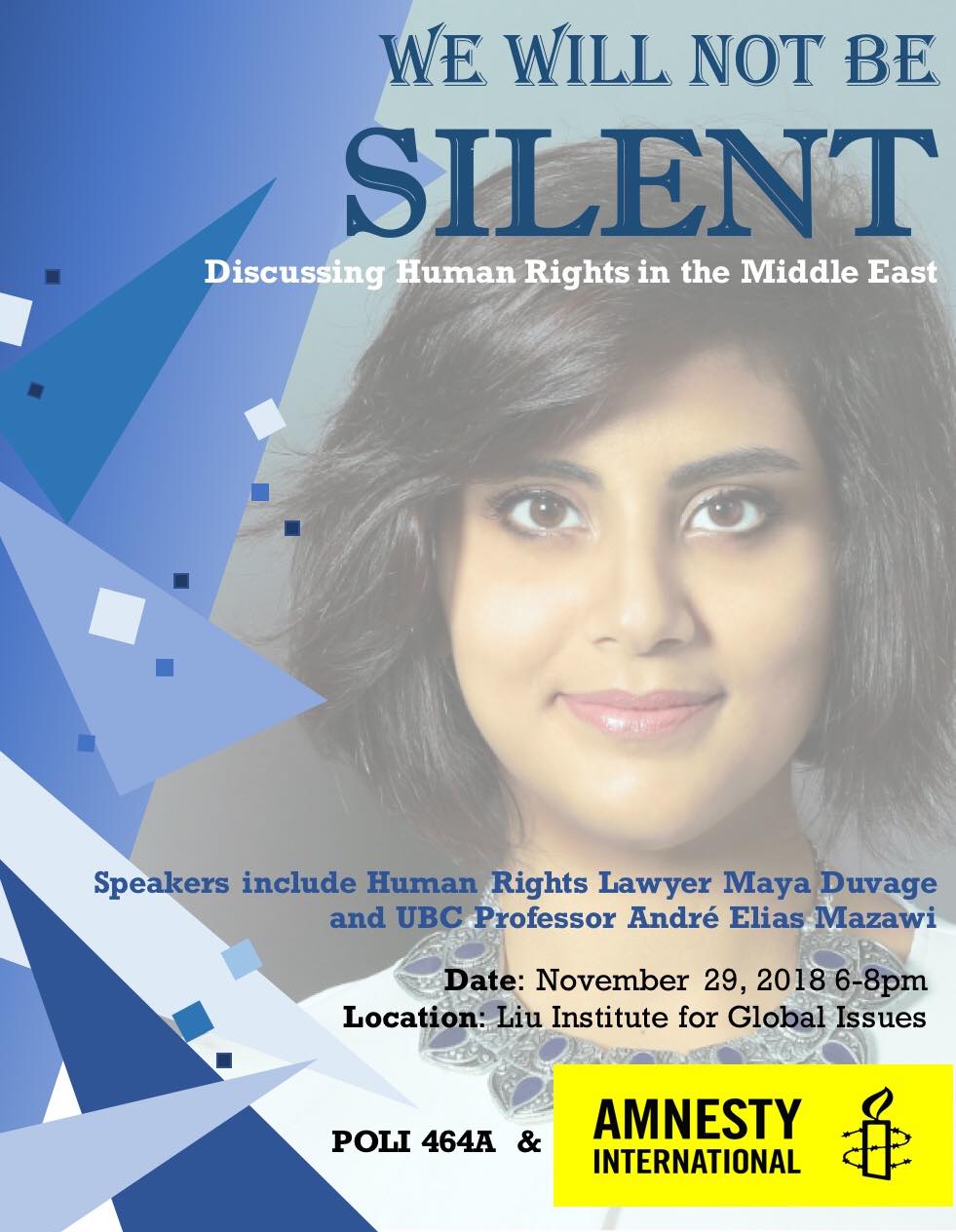
Nov 15, 2018
November 27
Tuesday, November 27, 4:00 – 5:15 PM
Seminar: Are school textbooks decolonisable? Entanglements of the ‘colonial present’ in Israel and Palestine
Seminar with Dr. André Elias Mazawi, UBC
Hosted by the Comparative, International, and Development for International and Development Education Centre (CIDEC) <https://www.oise.utoronto.ca/cidec/>
How should school textbooks be understood within contexts of intractable politico-military conflicts and in contexts of struggle for self-determination?
Sociologist of education Dr. André Elias Mazawi of UBC discusses this question and more.
Presented by the Comparative, International & Development Education Centre (CIDEC) and Youth, Activism and Community (YAC), Equity Studies, New College.
You can tune in online at: https://zoom.us/j/661234725
Nov 08, 2018
November 27, 2018
Social inequality in higher education attainment – a Nordic perspective
Seminar with Dr. Jens-Peter Thomsen, Research Associate Professor at the Danish Center for Social Science Research, Copenhagen, Denmark
Tuesday, November 27th, 2018 | 2:00 – 3:30 p.m. | PCOH 2012
Societies with high levels of social and educational mobility are normally perceived as more socially just, more economically effective, and mobile societies share many attractive features, such as high trust, good public health, social security, etc. In Denmark and the other Nordic countries, inequality of educational opportunity is lower than in most other places. Young people from disadvantaged backgrounds are more likely to attain higher education here than in the UK or the US, for example.
The Nordic exceptionalism is normally seen as the outcome of social democratic welfare regimes – universalistic welfare systems with high levels of redistribution and decommodification of welfare services, universal child care, high social security, free access to health and education, plus generous government grants for all higher education students.
At the same time, educational reproduction is still high in Denmark. Working-class children enter vocational programs at lower educational levels, while professional-class children enter professional university programs. Generally, middle-class children are much more likely to expect a higher education degree and to make the transition to higher education compared to their working-class counterparts, even if they have similar cognitive abilities.
In this seminar I will shed light on these issues, drawing on my own research on educational transitions and access to higher education. I will present and discuss findings from quantitative and qualitative studies, focusing on transition patterns and horizontal inequalities in higher education, and on the social gradient in young people’s educational expectations, educational strategies, and their ‘college-going habitus’.
Dr. Jens-Peter Thomsen is Research Associate Professor at the Danish Center for Social Science Research. His research interest lies within the areas of comparative educational inequality, social stratification and the sociology of education, with a special emphasis on how educational opportunities are shaped by the interplay between educational systems and social origin: by the socialization processes and educational strategies in families with different cultural, social and economic resources. In his research, Dr. Thomsen uses a mix of quantitative and qualitative methods. He is experienced in working with exploratory and confirmatory statistical methods, and in doing field observations, and conducting interviews. He is visiting EDST until November 30 and can be reached by email at jpt@vive.dk
